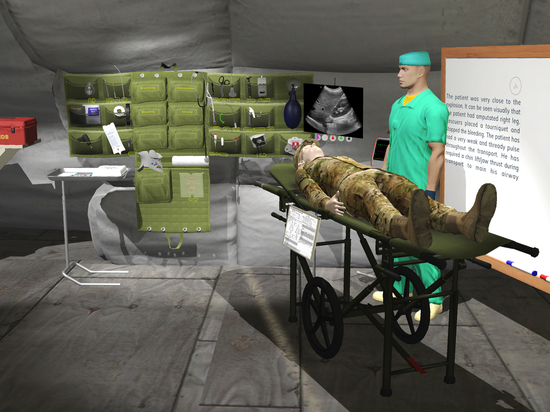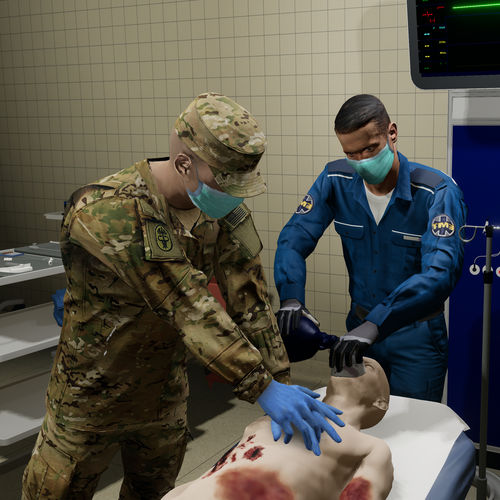
#Product Trends
Virtual reality is the most appropriate technology to design digital and interactive courses for medical education and decision training
Medical and trauma emergencies are intimidating and stressful for early-career medical personnel practicing outside their primary specialization, especially in basic and often poorly resourced settings.
Introduction
Medical and trauma emergencies are intimidating and stressful for early-career medical personnel practicing outside their primary specialization, especially in basic and often poorly resourced settings.
Opportunities to perform necessary procedures and treat fundamental injuries, such as managing patients with complex trauma, are limited and even more so in hospital SIM center curricula.
Without sufficient training and practice, trauma, and disaster settings, potentiate stressors can lead to catastrophic errors through a myriad of emotional, cognitive, and physical demands.
Practical training support of specific medical emergencies is limited before being confronted with a real scenario due to the unnatural or high-cost training modalities that simply fail to replicate real-world trauma management’s stress and gravity realistically.
Methodology
A set of 6 questions did the survey. The intention was to identify the opportunities for using computer-generated simulation in complex medical training. Ninety-four medical experts and professionals completed the survey. The outreach was 1507 views on LinkedIn and 832 email recipients (November 1st, 2020).
The survey participants have emphasized the capability to act effectively in complex traumatic emergencies is critical. The SIM center operators face the opportunity to provide more specialized and personalized content to healthcare professionals. The expansion of the curriculums introduces new training modalities for procedures, algorithms, and working environments. Implementing the academic content into digital applications will ease access to education and qualification for HCP’s.
The medical experts and professionals pointed out Virtual Reality (VR) and Augmented Reality (AR) as promising technologies to deliver on-site training to the actual workplace. Nevertheless, investment and financial efforts are barriers to overcome and ensure operation maintenance, including venues and training operators. The integration of complex items, multi-user participation for team training, mass casualty scenarios, adaptable simulations, and matching natural physiology is technically feasible. The content service providers’ tasks are to create trusted and scalable solutions following the HCP’s needs and requirements.
Virtual reality is the most appropriate technology to design digital and interactive courses for a broad HCP audience, medical education, and decision training. The classical curriculum reflects algorithms describing precisely the decision-making process for emergency care and treatments. Hospitals have to customize the guidelines by considering national, organizational, or institutional specifications and procedures. Still, the underlying technical and administrative framework remains, which allows affordable and scalable solutions.
“Bring your own device” (BYOD) already disrupts education and training in all subjects. The students often use their smartphones and VR headsets. These could be used to strengthen telesimulation in lectures and for individual enhancement. Access to on-demand computer-generated scenarios, such as mass casualty triage, airway thoracostomy, resuscitation practice, and suturing, would improve medical education accessibility. Currently, skill training in VR and AR is costly because of technology investments for particular devices and applications. Skill training requires outstanding performance to ensure an immersive, highly-precisely, and individualized training environment. As a result, only well-funded SIM operators are among the early adopters of these solutions, even in the early development stages.
The common understanding empowers the creation and the delivery of advanced learning systems in healthcare. The success depends on the trusted relationship and persistent medical experts’ engagement with service providers to ensure high-quality, evidence-based peer-reviewed content.
PDF you can download here https://hubs.ly/H0Flp640
Seattle, WA, USA
November 5th, 2020
Editors: Sandis Kondrats and André Nitzschmann
Research partners: Exonicus, Vidzeme University of Applied Sciences and Digital Health Cluster Latvia





